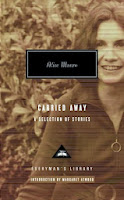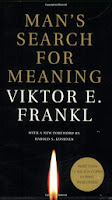by Tim Sanders
This article originally appeared on NetMinds.
Recently I caught up with my longtime friend Glenn Plaskin to talk about why chemistry was the #1 factor an author should consider when selecting a ghostwriter. He's both an author himself, a syndicated columnist, and seasoned ghostwriter of several bestselling books. While many authors look for credentials or, sadly, price, Glenn suggests they first seek out a personal connection.
Tim: How did you get started as a ghostwriter?
Glenn: For me, it all started with magazine writing. After 25 years in that business, one of my interview subjects, a celebrity, had liked an article I'd written about him, and asked me to write a book with him. We would talk on tape, I’d formulate a chapter from our interviews, and then we’d go over that material until it was a fully formed chapter, then a fully formed book.
Tim: Talk to me a little bit about why the author/ghostwriter relationship needs to be collaborative.
Glenn: It’s like going on a blind date except there won’t be any romance—or at least there shouldn’t be! But it is a little like dating someone: there has to be that indefinable click. And is anything more collaborative than dating? You have to feel a rapport, some kind of emotional connection that allows the author of the book to feel comfortable with a ghostwriter, to feel that the ghostwriter understands them, not just intellectually, but emotionally. An author/ghostwriter relationship needs to be harmonious. You’ll be working together in very tight quarters. So things have to be amiable. And having a great sense of humor is key too! I once met with a prospective author for what was scheduled as a 45-minute meeting, and we ended up talking and laughing for three hours! I knew after that our writing relationship would be a successful pairing. And it was.
Tim: How do you conceptualize the author/ghostwriter relationship?
Glenn: The author may have a compelling story but may not have the time, skill, or training to write it. The ghostwriter is the conduit. I compare it having a Mercedes: it’s a great car but when you need it serviced, you don’t try to do it yourself, you take it to the dealer. The ghostwriter is the book mechanic, who is best equipped to make the Mercedes run perfectly. The author has the ideas and the content; the ghostwriter has the technical skills to tell the story in the way in needs to be told.
Tim: Let’s put you in the author’s shoes. What should an author look for in a possible ghostwriter? You indicated humor previously. What other factors should the author be looking for in those first two general meetings with a ghostwriter?
Glenn: Well, the first thing a prospective author should do is check a ghostwriter’s credits. A simple resume check. Google the name, see what comes up. Go to the ghostwriter’s website and see if it’s professional and well maintained. Make sure they’ve been published. Make an effort to call authors the ghostwriter has worked with in the past and ask them how working with that ghostwriter was. There is quite a lot of pre-prep that can be done.
Tim: And ghostwriters should have their credentials readily available?
Glenn: Exactly. Once an author has determined the ghostwriter is professional, step two is the meet and greet. Usually the first interaction is conducted over the phone, then the second meeting in person. The very first thing I look for is simple likeability. Do you get along with the person? Would you be their friend in “real life”? Are you impressed with their intelligence? Do they seem to understand what you’re talking about? Did they come prepared? Nothing will impress someone more than knowing something about them. Everyone likes to talk about themselves. Also, is the ghostwriter a good interviewer? Can the ghostwriter fill in the blanks? Are they a good listener? Do they seem to be grasping the verbal cues that you’re giving them and picking up on them and furthering the conversation?
Tim: Do you always ghostwrite subjects that you are well versed in?
Glenn: Not at all. I met with a pastor once. I really liked the guy, so he passed the likability test, but I didn’t feel connected with the religious subject matter of his book. I didn’t actually have much interest in it. So I turned the project down. A few months later he came back to me and asked me again, and I said yes. I challenged myself. We ended up having a great collaboration. My lack of knowledge of the Bible didn’t hurt the product in any way. I feel that a good ghostwriter can write about anything, especially if they have great chemistry with the author, as I did with the pastor.
Tim: Can the author cultivate that chemistry?
Glenn: The author shouldn’t have to. Remember, the ghostwriter is there to make your life easy. They’re servicing your Mercedes. It’s not up to the Mercedes to do the work! The ghostwriter is the one that has to build the relationship and build the trust.
Tim: As a ghostwriter, can you improve the chemistry with the author?
Glenn: If by the second date you’re not crazy about the person, you’re really not going to go on any more dates. So I can’t overemphasize the importance of the first telephone and in-person meetings. If the click doesn’t happen after the first two or three interactions, it’s likely that it may not go any further. And maybe that’s as it should be. You can’t improve what never existed.
Tim: What do you do to sustain strong chemistry over a long project?
Glenn: Well, for starters, every working relationship needs boundaries. We can’t work in an unorganized vacuum. So it’s up to the two collaborators to decide things like: When are we going to work? How are we going to work? How often are we going to talk? Once these boundaries have been established, a ghostwriter might need to get creative when making sure the author follows them. I once worked with an author and our schedule was a tight one. We needed to finish a chapter every week. The problem was that he wasn’t giving me the information I needed soon enough. So I gently told him, “The train is leaving the station every Monday, one way or the other.” He heard me, and we had zero problems after that. I got the information I needed first thing Monday morning from then on. Writing a book takes discipline on both sides, and that certainly helps the sustained chemistry stay buoyant. The final thing I’ve learned to help keep the chemistry strong is to never responding when angry. In the book-writing process, there will be moments of great tension. There are going to be times when the author is irritated and not in the mood to do his or her part, and there are also going to be times when the ghostwriter may feel annoyed by the client. That’s normal. One thing I practice is that when I’m upset is always the wrong time to discuss it with the client. Instead, talk to a friend, talk to your sister, talk to anybody else, but don’t talk to the client. By practicing this, I hardly ever have arguments with an author. You want to avoid those at all costs. You’ve got to learn to let annoyances go. It’s almost like you have to take a ghostwriter twelve-step program! In order to keep the chemistry going, it’s very important to keep the relationship as harmonious as you can make it.
Tim is a bestselling author and former Yahoo! executive with a mission to disrupt the traditional publishing and self-publishing industries and share knowledge with authors looking to publish and market high-quality books. Follow him on Twitter at @sanderssays.
Monday, December 16, 2013
Monday, December 9, 2013
Holiday Gift Ideas: Ten Terrific Books to Give this Season
Jhumpa Lahiri once wrote, “That's the thing about books: they let you travel without moving your feet.”
This holiday season, give your loved ones, your writer friends, and even yourself the gift of experience—the feeling of unwrapping a present only to find it contains your imagination.
Here’s a list of books we recommend for this holiday season:
1. Hopscotch by Julio Cortázar
Because a little experiment keeps the mind on its toes.
2. Carried Away: A Selection of Stories by Alice Munro
Because we always need to be reminded that the small things are the big things.
3. And the Mountains Echoed by Khaled Hosseini
Because there’s more to Afghanistan than war.
4. Faces of Love: Hafez and the Poets of Shiraz (trans. Dick Davis)
Because a little poetry keeps the blood flowing.
5. The Goldfinch by Donna Tartt
Because we are all searching, and one day it will lead us somewhere.
6. The Cuckoo’s Calling by Robert Galbraith (J.K. Rowling)
Because we all need consoling since Harry Potter grew up.
7. Man’s Search for Meaning by Viktor Frankl
Because learning how to be a better person never goes out of style.
8. Love Is a Dog from Hell by Charles Bukowski
Because there's no lesson quite like one of unrequited love.
9. My Heart Is Broken by Mavis Gallant
Because we are all outsiders in our own way.
10. What I Talk About When I Talk About Running by Haruki Murakami
Because how to live life wasn't taught to us in school.
This holiday season, give your loved ones, your writer friends, and even yourself the gift of experience—the feeling of unwrapping a present only to find it contains your imagination.
Here’s a list of books we recommend for this holiday season:
1. Hopscotch by Julio Cortázar
Because a little experiment keeps the mind on its toes.
2. Carried Away: A Selection of Stories by Alice Munro
Because we always need to be reminded that the small things are the big things.
3. And the Mountains Echoed by Khaled Hosseini
Because there’s more to Afghanistan than war.
4. Faces of Love: Hafez and the Poets of Shiraz (trans. Dick Davis)
Because a little poetry keeps the blood flowing.
5. The Goldfinch by Donna Tartt
Because we are all searching, and one day it will lead us somewhere.
6. The Cuckoo’s Calling by Robert Galbraith (J.K. Rowling)
Because we all need consoling since Harry Potter grew up.
7. Man’s Search for Meaning by Viktor Frankl
Because learning how to be a better person never goes out of style.
8. Love Is a Dog from Hell by Charles Bukowski
Because there's no lesson quite like one of unrequited love.
9. My Heart Is Broken by Mavis Gallant
Because we are all outsiders in our own way.
10. What I Talk About When I Talk About Running by Haruki Murakami
Because how to live life wasn't taught to us in school.
Labels:
books,
christmas,
gifts,
Holiday gifts for booklovers,
holidays
Monday, December 2, 2013
How to Be an Entrepreneurial Writer
Though writing is an art, it’s vital to combine it with business savvy in order to give yourself a competitive edge. A keen understanding of the business of books and media will enhance your professionalism: you’ll approach clients, agents, and publishers more tactfully; pitch yourself for projects more frequently and sincerely; and learn to protect yourself and your financial interests.
Moreover, by becoming an entrepreneurial writer, you'll learn how to build confidence, be resourceful, take risks, earn more, and convince publishers and agents to invest in YOU.
Here are some ways to adapt an entrepreneurial mindset into your writer’s psyche:
1. Be Opportunity Focused
Entrepreneurs are always on the lookout for potential business ideas. As a writer, condition yourself to become curious about the world around you—ask questions, observe people and their environs, pay attention to trends—so you’ll be more likely to find inspiration that’s unique to you and relevant to your audience.
What can you write that could make someone’s life better or easier? How can you create value through your writing? Focus on these questions as you decide what stories to pitch.
2. Prepare Your Resources
Entrepreneurs have vision. They plan a clear path that will get them from where they are to where they want to be. An entrepreneur is always prepared and knows how to make a spontaneous good first impression.
As a writer, you also have to look ahead. Figure out your skill set, your strengths, and your weaknesses. Determine your USP (unique-selling point). Does your writing fit a niche, or is your strength your versatility? Do you have institutional knowledge about a subject that could be shared to benefit others? Be proactive about the results—if you’re interested in writing in a specific genre or style but don’t have much prior experience, reach out to people who do, or sign up for a class that will teach you the basics.
3. Network, Network, Network
Entrepreneurs are, by and large, master networkers. The old adage is true: it’s not only what you know that matters, but who you know.
Always look for ways to expand your network. Attend panels, workshops, and cocktail parties. Frequent bookstores, readings, and book launches. Figure out where the people you're writing about—or the audience you're writing for—gather, and make it a habit to spend time in those places. You never know whom you’ll meet.
And always carry business cards with your contact information and website, so you can continue the conversation later. Feel like you hit it off with someone at an event? Send an email expressing how delighted you are to meet them, show an interest in what they do, and ask follow-up questions. If you want to get involved with their organization, set up a meeting.
4. Take Risks
Entrepreneurs tend to be confident, inspired, and dynamic. They attempt things that are slightly out of reach—and are often rewarded.
Every so often, pitch yourself for a project that seem a little out of your league. With the right combination of talent, timing, and luck, you might be rewarded by landing the gig. And even if you don't, the exercise will refine your pitching skills and could lead to a new connection. You might even receive feedback that will improve your profile as a candidate in the future.
Moreover, by becoming an entrepreneurial writer, you'll learn how to build confidence, be resourceful, take risks, earn more, and convince publishers and agents to invest in YOU.
Here are some ways to adapt an entrepreneurial mindset into your writer’s psyche:
1. Be Opportunity Focused
Entrepreneurs are always on the lookout for potential business ideas. As a writer, condition yourself to become curious about the world around you—ask questions, observe people and their environs, pay attention to trends—so you’ll be more likely to find inspiration that’s unique to you and relevant to your audience.
What can you write that could make someone’s life better or easier? How can you create value through your writing? Focus on these questions as you decide what stories to pitch.
2. Prepare Your Resources
Entrepreneurs have vision. They plan a clear path that will get them from where they are to where they want to be. An entrepreneur is always prepared and knows how to make a spontaneous good first impression.
As a writer, you also have to look ahead. Figure out your skill set, your strengths, and your weaknesses. Determine your USP (unique-selling point). Does your writing fit a niche, or is your strength your versatility? Do you have institutional knowledge about a subject that could be shared to benefit others? Be proactive about the results—if you’re interested in writing in a specific genre or style but don’t have much prior experience, reach out to people who do, or sign up for a class that will teach you the basics.
3. Network, Network, Network
Entrepreneurs are, by and large, master networkers. The old adage is true: it’s not only what you know that matters, but who you know.
Always look for ways to expand your network. Attend panels, workshops, and cocktail parties. Frequent bookstores, readings, and book launches. Figure out where the people you're writing about—or the audience you're writing for—gather, and make it a habit to spend time in those places. You never know whom you’ll meet.
And always carry business cards with your contact information and website, so you can continue the conversation later. Feel like you hit it off with someone at an event? Send an email expressing how delighted you are to meet them, show an interest in what they do, and ask follow-up questions. If you want to get involved with their organization, set up a meeting.
4. Take Risks
Entrepreneurs tend to be confident, inspired, and dynamic. They attempt things that are slightly out of reach—and are often rewarded.
Labels:
business,
entrepreneur,
freelance writing,
networking,
pitch
Subscribe to:
Posts (Atom)
© 2008 Gotham Ghostwriters, All rights reserved.















